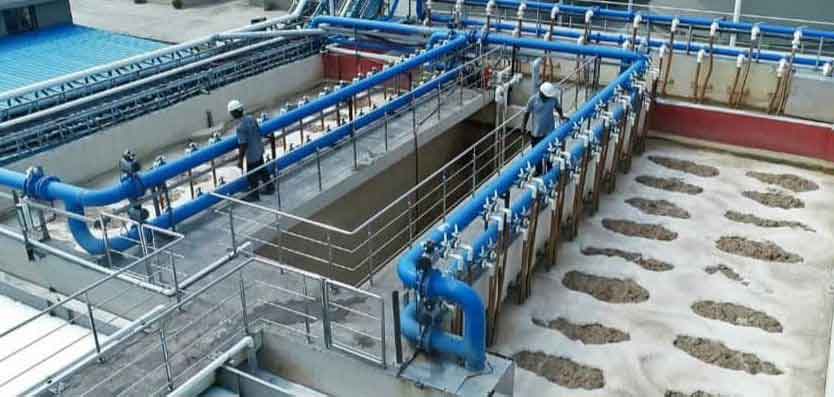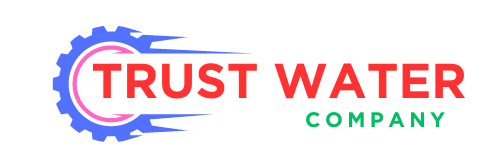A Guide to the Best ETP Plant Manufacturers in 2024
Bangladesh, a nation brimming with economic potential, faces a crucial challenge: balancing industrial growth with environmental responsibility. As factories churn out textiles, garments, and other goods, they also generate a hidden byproduct – industrial wastewater, or effluent. This effluent, laden with pollutants, can wreak havoc on ecosystems and public health if left untreated.
Here’s where Bangladesh’s effluent treatment plant (ETP) manufacturers step in as the unsung heroes, playing a vital role in the country’s sustainable development.

Why ETPs Matter Deep Dive
Imagine a vibrant textile mill, the lifeblood of Bangladesh’s economy. The dyeing process, for instance, uses a cocktail of chemicals that stain fabrics but pollute water. Discharging this untreated effluent into rivers would be disastrous. Here’s where textile effluent treatment comes in: ETPs act as nature’s filters, removing harmful contaminants through various industrial wastewater treatment technologies.
This extends beyond textiles. The garment industry wastewater treatment, pharmaceutical wastewater treatment, and tannery wastewater treatment plant are all crucial for their respective sectors.
The benefits are undeniable:
- Water pollution control: ETPs prevent the contamination of rivers, lakes, and groundwater, safeguarding the health of aquatic ecosystems and the communities that depend on them.
- Environmental compliance: Environmental regulations for effluent discharge are becoming increasingly stringent. ETPs ensure industries meet these standards, avoiding hefty fines and protecting Bangladesh’s natural beauty.
- Sustainable wastewater management: By treating wastewater, ETPs pave the way for water reuse in non-potable applications like irrigation or industrial processes. This conserves precious freshwater resources.
Top ETP Manufacturers in Bangladesh
The Bangladeshi ETP manufacturing landscape boasts several companies dedicated to providing top-notch solutions. Here are some leading contenders:
- Green Genesis Engineering Limited (GGEL): Renowned for their cutting-edge ETPs and commitment to sustainable wastewater management, GGEL offers customized solutions for diverse industries.
- M/s Asha Enterprise: A one-stop destination for all ETP needs, Asha Enterprise caters to various industries with their reliable and efficient ETP systems.
These are just a few examples, and several other manufacturers contribute significantly to Bangladesh’s clean water story.
Choosing the Right ETP
Selecting the perfect ETP manufacturer hinges on several factors:
- Industry-Specific Expertise: Different industries have unique wastewater compositions. Look for a manufacturer with proven experience in treating effluents specific to your sector, like textile industry effluent treatment.
- Technology Options: ETPs employ various technologies, each with its strengths. Consider activated sludge process, membrane bioreactors (MBRs), or constructed wetlands based on your effluent characteristics and desired water quality.
- Cost-Effectiveness: ETP plant price is a crucial factor. Small scale ETP plant costs will differ from large scale ETP plant costs. Seek manufacturers who offer competitive pricing without compromising quality.
- After-Sales Support: Opt for a manufacturer that provides comprehensive after-sales support, including installation, maintenance, and operator training.
Essential Considerations
The Bangladeshi ETP landscape is constantly evolving. Here are some key trends to keep in mind:
- Upgrading ETPs for Industrial Use: As regulations tighten and environmental consciousness grows, industries are upgrading their ETPs to meet stricter discharge standards.
- Sustainable ETP Solutions: Manufacturers are focusing on energy-efficient and eco-friendly ETP designs that minimize their environmental footprint.
- Optimizing Industrial Effluent Treatment: Advanced technologies like membrane filtration and biological treatment are gaining traction for their efficiency in removing pollutants.
Government Regulations and Public-Private Partnerships
The Bangladeshi government plays a crucial role in promoting responsible effluent treatment. Government regulations on effluent treatment are becoming more robust, ensuring industries adhere to environmental standards.
Public-private partnerships (PPPs) are also fostering innovation. By collaborating with ETP manufacturers, the government can accelerate the development and implementation of cost-effective ETP solutions.
A Collective Effort
The journey towards clean water in Bangladesh requires a collective effort. ETP manufacturers play a critical role by providing the technology and expertise to treat industrial wastewater. Industries, by adopting responsible wastewater management practices, contribute to a sustainable future. Finally, the government, through effective regulations and PPPs, can create an enabling environment for clean water solutions to flourish.
